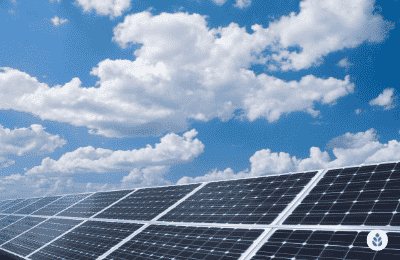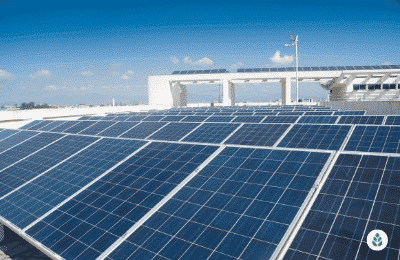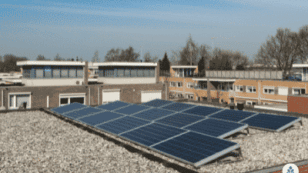 Reviews
Reviews
How Much Do Solar Panels Cost in Missouri? (2024 Savings Guide)
In this guide on the cost of solar panels in Missouri, you’ll learn:
- What the average cost of going solar is in the Show-Me State
- How Missourians can save money when going solar
- Which local installation companies have the best prices
Each product and or company featured here has been independently selected by the writer. You can learn more about our review methodology here. If you make a purchase using the links included, we may earn commission.
Looking to go solar in Missouri? It’s a great place to go solar, not only because the cost per watt for photovoltaic (PV) panels is below average in the Show Me State but also because the typical energy consumption in is well above average. However, the cost of solar panels in Missouri is still a concern for many residents considering converting to this clean energy source, and many homeowners don’t even know if they can afford solar equipment.
In this guide, we’ll be discussing the average cost of solar panels in Missouri, some things that can affect your pricing, how to save money in the conversion process and more. This guide should help you decide if solar is right for your Missouri home and how much a system will save you over time.
What Will Your Solar Panel System Cost in Missouri?
Solar panels are often priced on a per-watt basis in the solar industry, and the typical cost per watt in Missouri is $3.12.
Since most Missourians need systems totaling around 10.5 kilowatts (kW) or 10,500 watts, that means the average conversion cost sits at $32,760 before any tax credits or $22,932 after the federal investment tax credit (ITC) is applied.
This number can fluctuate heavily based on the size of the system you need. The table below includes some average pricing based on your monthly energy consumption, your home size and more.
| Solar System Size | Energy Use (per month) | House Size (sq ft) | Total Cost | Cost After the Federal ITC | Energy Savings (over 25 years, after system is paid off) |
| 8 kW | 800 kWh | 1,400 | $24,960 | $17,472 | $17,712 |
| 9 kW | 900 kWh | 1,600 | $28,080 | $19,656 | $19,926 |
| 10 kW | 1,000 kWh | 1,800 | $31,200 | $21,840 | $22,140 |
| 11 kW | 1,100 kWh | 2,000 | $34,320 | $24,024 | $24,354 |
| 12 kW | 1,200 kWh | 2,200 | $37,440 | $26,208 | $26,568 |
| 13 kW | 1,300 kWh | 2,400 | $40,560 | $28,392 | $28,782 |
| 14 kW | 1,400 kWh | 2,600 | $43,680 | $30,576 | $30,996 |

Blue Raven Solar
Pros
- Industry-leading in-house financing
- Competitive pricing
- Excellent reputation
Cons
- Doesn't offer solar batteries (coming 2022)

Astrawatt Solar

Average cost
Pros
- Comprehensive service offerings
- Excellent reputation
- Award-winning company
- Educational, no-pressure sales approach
Cons
- Limited service area
- Relatively young company
How Do Missouri’s Solar Prices Compare to the National Average?
Missouri’s typical cost per watt for PV equipment is $3.12, which is quite a bit lower than what most other states pay — $3.33. That means that your money goes a little further in terms of wattage and power production per dollar when converting to solar energy in Missouri than it would in most other states.
While per-watt prices are below average in the state, residents in Missouri also use more electricity than those in most other states, averaging around 1,028 kilowatt-hours (kWh) per month. To offset the above-average energy costs, homeowners in the state need above-average array sizes, so the total price to convert is above average.
Most Missourians pay around $32,760 before the federal credit, which is close to $3,000 over what most U.S. residents pay — $29,970. After the federal credit, the total in Missouri comes in at $22,932, which is around $2,000 more than what most Americans pay, which is $20,979.
As such, your money goes further on a watt-per-dollar basis, but you’ll end up spending more than the national average on your home solar array in Missouri because of the larger system size required to offset the above-average energy demands.
What Are the Main Factors of Solar System Costs in Missouri?
The average price for a solar array in Missouri might sit at around $23,000 after the federal credit, but the typical range for systems in the state is between $17,472 and $30,576. The $13,000+ difference between the lowest and highest typical prices is due to a few different factors that can affect your system total. Some of the most influential solar panel cost factors in Missouri include the following:
- How much energy you consume per month
- The efficiency of the panels you have installed
- Add-on solar products, like solar batteries
We’ll explain how each of these factors can affect your total solar panel installation costs in the following sections.
Missouri’s Above-Average Energy Needs
One of the most significant cost factors when it comes to installing solar panels is the amount of energy your home consumes on a monthly basis. Larger systems are required to offset higher rates of electricity usage, and adding more panels to offset your energy demands will naturally be more expensive.
The average Missourian uses 1,028 kWh per month, according to the Energy Industries Association (EIA), which is well above the national average. A good portion of this energy is dedicated to cooling homes in the hot, humid summers and heating them in the cold winter months.
If you use even more energy than average, then you can expect your installation total to be significantly higher since you’ll likely need additional panels, close to the average high of $30,576. If you have below-average rates of consumption, then you’ll probably have an installation cost closer to the average low price of around $17,472.
We do recommend oversizing your system a bit. Even though that means paying a little more initially for your system, offsetting as much of your utility bills over time as possible will very likely lead to greater savings in the long run.
Panel Efficiency in Missouri
Missouri homeowners enjoy an average of 206 sunny days per year, which is right in line with the national average. That means residents can justify either lower-efficiency panels, which are less expensive but produce less energy in all cases, or high-efficiency panels, which are more costly but generate more usable electricity at all times.
If you opt for low-efficiency panels, your upfront costs will probably be significantly lower — sometimes thousands of dollars lower. However, you’re unlikely to offset all of your electric bills, given the high energy needs in your state. As such, your initial costs will be below average, but your savings over time will be compromised.
We recommend instead going with high-efficiency monocrystalline panels. These will cost you more at first, but they will let you maximize your energy savings, making them a better financial decision in the long run.
Missouri’s High Risk of Power Outages
Finally, whether or not you choose to install solar batteries will play a major role in your total system price. In general, solar batteries offer two primary benefits to solar customers.
First, they provide additional savings in areas where net metering isn’t available because they let you overproduce electricity and call on that excess for free when your panels underproduce. Second, they let you maintain power through blackout conditions.
Net metering — also called net energy metering or NEM for short — is mandated in the State of Missouri, and the credit rate per excess kWh is set to the retail rate for electricity. That means solar batteries won’t provide the net energy metering benefit to Missourians as they would to residents in other states.
However, Missouri is the seventh most likely state to experience power outages due to high demand and an aging infrastructure. As such, maintaining electricity through power outages is a pretty significant benefit of installing a solar battery.
Doing so will add around $10,000 to your installation total, on average. We generally recommend against choosing a battery unless you need power for medical equipment or just want to pay more for the convenience they provide.
Additional Costs of Going Solar in Missouri
In addition to paying for the actual panels, you’ll run into some other costs in Missouri when converting to renewable energy. We’ll discuss some other charges you should be aware of below.
- Administration costs and product markup: Your solar installer will likely help you file for local tax incentives and rebates, but they may charge an administration fee for that service. In most cases, these will be minimal and total no more than a few hundred dollars. Some installers also mark up the prices of the equipment they buy to help maximize profit, and that markup can cause fluctuations in your pricing as well.
- Additional solar equipment: Aside from panels and batteries — if you choose to install them — your solar array will also require racking equipment to mount your panels and wiring, conduit and inverters to connect your panels to your home’s electrical system. These additional pieces of equipment are sometimes included in the panel cost, but some installers charge separately for them. These can add up to a few hundred dollars as well.
- Building permits: Building permits are mandated in Missouri for all home solar energy systems, and most municipalities in the state charge fees for filing for permits. The fees can range from around $25 to $200 or more, depending on which city you live in. You might also get charged for the post-installation inspection.
- Interconnection fees: Your electric company will likely require an inspection of your system before it can officially be connected to the grid and activated. Some utility companies charge an interconnection fee, which includes a fee for that inspection. The fee usually falls between $25 and $100, but some companies charge more.
Watch Below: Is Solar Actually Worth It? What’s True vs What’s a Myth
What Maintenance Costs Can Solar Owners Expect in Missouri?
The upfront price of solar panels in Missouri might be high, but the ongoing costs are usually non-existent. Most Missouri homeowners never need to pay for panel maintenance over the lifespans of their systems.
Some solar customers pay for panel cleaning once or twice a year, as washing off pollen, dirt and debris can help maintain your panels’ maximum efficiency and production rate. However, since Missouri sees above-average rainfall each year that naturally keeps panels clean, the service isn’t a necessity.
Any mechanical issues you experience with your panels should be covered by your solar panel warranty, so it’s unlikely you’ll be on the hook for maintenance or repairs, either.
Which Solar Financing Options Will Help You Save the Most in Missouri?
Missourians have access to the four primary solar panel payment options, which include cash purchases, solar loans, solar leases and power purchase agreements (PPAs).
We recommend a cash purchase to most solar customers because it leads to instant panel ownership, avoids your having to pay interest and leads to the lowest long-term system price and highest savings overall. Paying in cash is less accessible in Missouri than in most other states, though, given the above-average cost of a rooftop solar power system.
A solar loan is, in our opinion, the next best option. You’ll pay interest over time, which will drive up your total cost, but many loans come with $0-down options, which makes them far more accessible than paying cash, especially in a high-cost area like Missouri.
Cash payments and loans both let you take the federal solar tax credit, which has an average value of $9,828 in Missouri. Unfortunately, leases and PPAs don’t give you access to the credit.
A lease can be a good option for some homeowners who can’t justify spending $22,000+ on a solar array and who won’t qualify for a solar loan. Leases come with no upfront charges and usually lead to instant savings. However, the savings over time are significantly lower, as you’ll never pay off your panels like you would with a cash payment or loan.
We typically don’t recommend PPAs to anyone. They’re super accessible because of minimal credit requirements and no money down required, but leases tend to save a little more over time and are about as widely available.
If you want to keep your options open, we recommend checking SunPower and Sun Solar. SunPower is a national solar installation company that provides access to all four payment options, while Sun Solar is a local company that accepts everything other than PPAs.
You can also use our solar calculator to find out what your solar array will cost, decide which options you can afford and then choose the one that seems most appealing based on the information in the table below.
| Financing Method | Total 25 Year Savings (estimated) | Initial Costs (estimated, after the ITC) | Monthly Payments (estimated) | Payback Period (estimated) |
| Cash | $33,870 | $22,932 | $0 | 11 years |
| Loan | $28,000 | $0 | $150 to $300 | 15 years |
| Lease | $5,000 | $0 | $140 | N/A |
| PPA | $4,000 | $0 | $140 | N/A |
What Are Other Ways You Can Save When Going Solar in Missouri?
With installation prices being well above average in Missouri, it’s important to find as many ways to save money throughout the process as possible. We’ve come up with a few money-saving tips for Missouri solar customers, including the following:
- Taking advantage of solar incentives
- Choosing a high-efficiency panel brand
- Avoiding solar batteries
We’ll explain how each of these tips can save you money and include approximately how much each can save in the following sections.
Take Advantage of Missouri Solar Incentives
One of the best ways to keep your initial and long-term costs to a minimum in Missouri is to take as many solar perks as you can.
All Missouri residents have access to the federal tax credit, which provides an average potential savings of $9,828 in your area. There are also a few financing programs for solar equipment available in the state that can help keep financing costs down, including the Show Me Property-Assessed Clean Energy (PACE) Financing program and the Set the PACE St. Louis program.
The state also offers a solar property tax exemption that prevents your property taxes from going up after solar conversion, and the net metering program is hugely beneficial and helps offset as much of your energy bills as possible, even when your panels aren’t producing power at night.
You might also have access to local Missouri solar incentives and rebate programs, depending on where you live and who your utility company is. Columbia Water & Light, Evergy, Ameren and Empire District Electric all offer solar rebates to help keep initial costs as low as possible. These alone save between $2,000 and $6,500, on average.
Choose a High-Efficiency Panel Brand
Another great way to maximize your energy savings over time is to choose a high-efficiency solar panel brand like Maxeon. These panels will cost you more at first, but they’re more likely to help you continue to offset your electricity rates, especially as the panels naturally degrade over time and lose efficiency.
Keep in mind that you can get away with lower-efficiency panels in the Show-Me State, thanks to the average amount of available sunlight and the one-to-one NEM that’s mandated in the state.
However, high-efficiency panels are more likely to eliminate your electric bills entirely, and if net energy metering ever goes away or gets downgraded — as is happening in many states — you’ll still be set up for maximum savings.
Don’t Install a Solar Battery
Finally, we recommend staying away from solar batteries if you’re looking to save money on your solar photovoltaic system. They might be appealing because of the frequency of blackouts in your area, but they add an average of approximately $10,000 to your system price, and since the state has a great NEM program, they likely won’t boost your savings at all.
Avoiding a battery for your home will save about $10,000, on average.
What Are the Typical Costs of Missouri’s Solar Installers?
Each solar installer in Missouri has different pricing for labor and equipment, although a system from most will still fall between $17,500 and $30,500. The table below includes a side-by-side comparison of some of the best solar installers in Missouri, including a look at the relative cost to help you decide which will fit into your budget.
| Solar Company | Superlative | EcoWatch Rating (Out of 5.0) | BBB Rating | Average Cost ($–$$$$$) |
| SunPower | Best National Provider | 5.0 | A+ | $$$$ |
| Blue Raven Solar | Best Solar Financing | 4.5 | A+ | $$ |
| Sun Solar | Outstanding Local Installer | 4.0 | A+ | $$$ |
| Zenernet Solar | Outstanding Regional Installer | 4.0 | NR | $$ |
| Astrawatt Solar | Outstanding Regional Installer | 4.5 | A+ | $$$$ |
How Are Solar Costs and Regulations Trending In Missouri?
The Solar Energy Industries Association (SEIA) reports that the price of solar panels in Missouri has dropped by around 53% in the last 10 years, which is a significant dip.
It’s believed that advancements in manufacturing and an upward trend in solar demand — which has led to mass production — have precipitated this downward price trend. We expect prices to continue to come down in the near future.
Unfortunately, we’re expecting the available solar incentives to become less available or less appealing in the coming years. Although there are no plans to reduce the net energy metering credit rate or get rid of incentives, the state’s renewable portfolio standard (RPS) goal was met in 2021 and hasn’t been renewed.
Since the RPS goal is often what drives incentives to expand and improve, we wouldn’t be surprised if they start disappearing or getting less advantageous since the RPS goal has expired. If something does change for the worse, we’d expect it to be the net metering program, as this is the incentive that is changing the most commonly across the country.
With prices lower than they have been and an expectation of decreasing incentives, we think now is the best possible time to go solar in Missouri. You can use the tool below to get free solar quotes customized for your home and energy demands so that you don’t miss out.
The cost information presented in this article is derived from a comprehensive analysis, incorporating data from multiple industry sources. The average cost per watt per state was calculated based on figures from Consumer Affairs, Energy Sage, and Berkeley Lab’s Electricity Markets & Policy Department. Additionally, monthly energy consumption and the average monthly cost of electricity were sourced from the U.S. Energy Information Administration, ensuring a well-rounded and accurate representation of the information presented.
FAQs: Missouri Solar Panel Costs
We get a lot of questions about solar panel costs in Missouri and the process of converting to a clean energy source likt solar. We’ll provide answers to the most common questions we see from homeowners in your area below.
For most homeowners, yes! Solar panels are expensive, but they pay for themselves in an average of 11 years in Missouri. Since they have an estimated lifespan of 25+ years, that means 14 years of net savings you can enjoy by going solar in Missouri. The average resident sees savings that pay for the system and then saves an additional $33,870.
The average solar power system in Missouri costs $32,760 before the federal credit or $22,932 after the credit is applied. This assumes the average local cost per watt of $3.12 and that you have an average rate of energy consumption, which demands an 11 kW system in your area.
Missouri does not have a state tax credit. However, all residents can take the federal investment tax credit, which provides a credit to your income taxes in the amount of 30% of your system total. In Missouri, that equates to an average credit of $9,828.
Missouri does not have a statewide solar rebate program. However, some electric companies offer rebates for solar equipment. These include Columbia Water & Light, Evergy (formerly Kansas City Power & Light), Ameren and Empire District Electric.
Top Solar Installers In Missouri Cities
Comparing authorized solar partners
-
- Industry-leading in-house financing
- Competitive pricing
- Excellent reputation
- Doesn't offer solar batteries (coming 2022)
A+Best Solar Financing2014Trina Solar, Canadian Solar, SolarEdge, Silfab, SunPower25-year manufacturer warranty; 10-year workmanship warranty, 2-year production guarantee
Having trouble deciding? Click below and use our process to receive multiple quotes instead:

 233k
233k  41k
41k  Subscribe
Subscribe 






